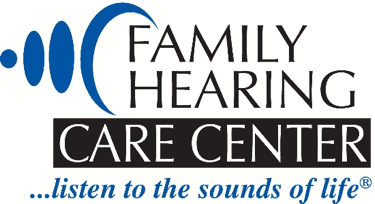
The Sound of Health: How Diet and Exercise Impact Your Hearing
Hearing health is often overlooked in discussions about overall well-being, yet it plays a crucial role in our daily lives. Our ability to hear connects us to the world around us, allowing us to communicate, enjoy music, and experience the beauty of nature. As a leading audiologist, I believe it’s essential to emphasize the profound impact that diet and exercise can have on our hearing health. In this article, we will explore the latest advancements in hearing loss prevention, diagnosis, and management while highlighting the importance of early detection.
The Connection Between Diet and Hearing Health
Recent research has shed light on the intricate relationship between our dietary choices and hearing health. While there is no magic food that can cure hearing loss, maintaining a balanced diet can help protect your auditory system from damage and age-related decline. Here are some dietary considerations:
Antioxidants:
Antioxidants, found in fruits and vegetables like blueberries, spinach, and carrots, can help combat the harmful effects of free radicals on the delicate structures of the inner ear. These free radicals can contribute to hearing loss over time.
Omega-3 Fatty Acids:
Foods rich in omega-3 fatty acids, such as salmon, walnuts, and flaxseeds, have anti-inflammatory properties that can support healthy blood flow to the inner ear. Improved blood circulation helps nourish the auditory system and may reduce the risk of hearing loss.
Magnesium:
Magnesium is crucial for the proper function of the hair cells in the inner ear. Nuts, seeds, whole grains, and leafy greens are excellent dietary sources of magnesium.
Limit Sugar and Salt:
High sugar and salt intake can lead to conditions like diabetes and hypertension, which are associated with an increased risk of hearing loss. Reducing your consumption of processed foods and sugary drinks can help protect your hearing.
Exercise and Hearing Health
Regular physical activity not only benefits your cardiovascular system but can also play a significant role in maintaining good hearing health. Here’s how exercise can impact your auditory system:
Improved Blood Flow:
Exercise increases blood circulation, delivering vital nutrients and oxygen to the inner ear. This improved blood flow helps maintain the health of the hair cells responsible for transmitting sound signals to the brain.
Weight Management:
Maintaining a healthy weight through regular exercise can reduce the risk of obesity-related conditions like diabetes and high blood pressure, which are linked to hearing loss.
Stress Reduction:
Chronic stress and anxiety can contribute to hearing problems. Exercise is an excellent way to reduce stress levels, promoting overall mental well-being and potentially protecting your hearing.
Enhanced Cognitive Function:
Exercise has been shown to support cognitive function, which is closely connected to hearing health. Engaging in activities that challenge your brain, such as aerobic exercise or learning a new skill, can help maintain your cognitive abilities and, indirectly, your hearing.
The Role of Early Detection
Preventing hearing loss is always preferable to treating it, but early detection is equally crucial. Regular hearing check-ups with a hearing professional can identify any signs of hearing loss or related conditions early on. Early detection allows for timely interventions and minimizes the impact of hearing loss on your life.
Advancements in Hearing Loss Prevention
In recent years, research has led to exciting developments in hearing loss prevention:
Noise Protection Technologies:
Advanced noise-canceling devices and custom-fitted earplugs can help protect your ears from harmful noise levels in both occupational and recreational settings.
Personalized Hearing Health Plans:
Audiologists can now create personalized hearing health plans, including dietary recommendations and exercise regimens, tailored to an individual’s specific needs and risk factors.
Genetic Screening:
Genetic testing can identify genetic predispositions to hearing loss, allowing for early interventions and personalized treatment plans.
Futuristic Interventions
While we are not yet at the stage of reversing hearing loss, ongoing research holds promise for futuristic interventions:
Regenerative Therapies:
Scientists are exploring regenerative therapies that aim to repair or replace damaged hair cells in the inner ear, potentially restoring hearing function.
Cochlear Implant Advances:
Cochlear implants, which provide hearing to individuals with severe to profound hearing loss, continue to advance in terms of technology and effectiveness.
Brain-Computer Interfaces:
Researchers are investigating brain-computer interfaces that may enable direct communication between the brain and hearing devices, potentially enhancing hearing restoration options.
Hearing health is an integral part of our overall well-being, and it’s essential to recognize the significant impact that diet and exercise can have on preserving our auditory abilities. By making informed dietary choices and incorporating regular physical activity into our lives, we can reduce the risk of hearing loss and related conditions.
Additionally, early detection through regular hearing check-ups with a hearing professional is critical. Advances in prevention strategies, genetic screening, and potential futuristic interventions offer hope for the future of hearing health. As a leading audiologist, my mission is to empower individuals to take proactive steps to protect their hearing, ensuring a world filled with the beautiful sounds of life for everyone.
